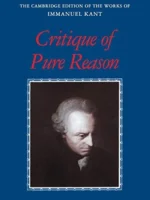Beyond Good and Evil, Nietzsche, 1886
- Author: Nietzsche
- Genre: Philosophy
- Publisher: Penguin Classics
- Publication Year: 2009
- Pages: 240
- Format: Paperback
- Language: English
- ISBN: 978-0140449235
- Rating: 4,2 ★★★★☆
Beyond Good and Evil Review
About
Friedrich Nietzsche’s Beyond Good and Evil (1886) is his boldest critique of conventional morality and philosophy. It takes aim at dogma—religious, moral, and academic—and calls for a reevaluation of all values. Where Thus Spoke Zarathustra speaks in myth and poetry, this book speaks with scalpel and spark. It’s provocative, aphoristic, and uncomfortably honest.
Overview
Nietzsche argues that traditional morality—built on humility and obedience—stifles human excellence. He proposes a “philosophy of the future” grounded in creativity, strength, and self-overcoming. The book is a whirlwind of ideas: truth as illusion, will to power as life’s essence, and morality as psychological defense. Each aphorism is a grenade—short, polished, and explosive.
Summary
(light spoilers) Nietzsche begins by mocking philosophers for claiming objectivity while secretly serving their own instincts. He exposes moral systems as masks for weakness or resentment. He calls for new philosophers—free spirits who embrace risk and contradiction. His vision of the “Übermensch” hovers in the background, not as a dictator but as an artist of life. The closing sections turn lyrical, confronting nihilism with defiant joy: “What is done out of love is always beyond good and evil.”
Key Themes / Main Ideas
• Morality as invention — not eternal, but human-made.
• The will to power — creative force as life’s engine.
• Truth as perspective — no absolute certainty.
• Freedom — strength to live without fixed values.
• Philosophy as art — thinking as creation, not obedience.
Strengths and Weaknesses
• Strengths — Brilliant, fearless, and poetic.
• Strengths — Compresses complex thought into vivid language.
• Weaknesses — Fragmented; can feel cryptic or elitist.
• Weaknesses — Often misused by readers who ignore its irony.
Reviewed with focus on themes, audience, and takeaways — Friedrich Nietzsche
| pa_author | Nietzsche |
|---|---|
| ISBN | 978-6-349-90221-0 |
| pa_year | 2002 |
| Pages | 204 |
| Language | English |







